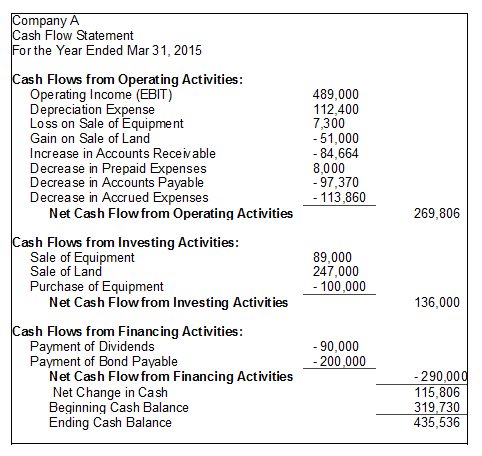
You should consider all evidence of the degree of control and independence in this relationship. The facts that provide this evidence fall into three categories – Behavioral Control, Financial Control, and Relationship of the Parties. Accurate classification of workers as either independent contractors or employees is imperative in order to maintain compliance with labor laws and circumvent possible legal and financial penalties. Each state also has tests to determine a person’s status under workers’ compensation and unemployment insurance laws. The economic realities test used in most states makes it harder to classify a worker as an independent contractor because, in addition to the degree of control test, it considers the degree the worker is economically dependent upon the business. The most common way companies get into trouble with misclassification is by not paying overtime.
- In Massachusetts, most people who work or provide services are considered employees under the law.
- More than one government agency has a test to define what an independent contractor is.
- To find out what your tax obligations are, visit the Self-Employed Individuals Tax Center.
- While an employee works under the direct control and supervision of an employer, independent contractors have more autonomy over their work.
- The company also requires the owner-operator to meet certain contractually agreed-upon delivery deadlines, and her contract includes agreed-upon incentives for meeting, and penalties for missing, the deadlines.
Each has its own angle, which means that each has a slightly different focus. That said, many test factors coincide, while others contradict each other. If you make a good faith effort to clear as many factors as possible, you’ll be well on your way to classifying workers correctly. Just because someone works remotely, signs an independent contractor agreement, pays for their own office supplies and receives a 1099 form doesn’t necessarily mean they’re an independent contractor. Also remember that misclassifying employees as contractors carries a much higher penalty than misclassifying the other way around. If both options are on the table and you have the budget for it, it’s always safer from a classification standpoint to simply hire an employee.
Common Law 20-Factor Test
This program offers partial relief from federal employment taxes for eligible businesses who agree to prospectively treat their workers as employees. Businesses must meet certain eligibility requirements and apply by filing Form 8952, Application for Voluntary Classification Settlement Program (VCSP), and enter into a closing agreement with the IRS. Under the final rule, this would not constitute control that makes the owner-operator more or less likely to be an employee under the FLSA. Misclassifying employees as independent contractors puts the employer at risk of violating labor laws.
While independent contractors do not receive traditional common law employee benefits, the flexibility allowed in an independent contractor position is a benefit in and of itself. With employees, you must withhold income taxes, pay Social Security, Medicare taxes, and unemployment taxes on all wages paid to employees. A business may pay an independent contractor and an employee for the same or similar work, but there are important legal differences between the two. For the employee, the company withholds income tax, Social Security, and Medicare from wages paid. Generally, you must withhold and deposit income taxes, social security taxes and Medicare taxes from the wages paid to an employee.
Employee vs. independent contractor: Differences you need to know
This is because misclassification leaves them ineligible for unemployment insurance or workers’ compensation benefits. Besides potential problems with the government, misclassification can also lead to issues with the misclassified workers themselves. Workers that believe they have been misclassified may sue their employers seeking back pay, unpaid overtime, and other benefits they have the right to.
In today’s job market, businesses and job seekers alike are no longer relying on a traditional 9 to 5 work life. Instead, they’ve adopted a more flexible approach to employment through short-term work arrangements. Independent contractors generally take on a measure of financial risk and can incur losses. They often have fixed operating costs relating to operating a workspace or hiring helpers or assistants.
The earnings of a person who is working as an independent contractor are subject to self-employment tax. To find out what your tax obligations are, visit the Self-Employed Individuals Tax Center. Hiring employees can be more expensive than hiring contractors due to the cost of training, benefit packages, and expectation of raises and bonuses. But employees are better equipped to take on additional responsibilities and have more flexibility to help your business succeed.
Employees, also called common-law employees, earn regularly scheduled paychecks. Their employer must withhold a portion of employees’ paychecks for Federal Insurance Contribution Act (FICA) taxes, state income tax, and federal income tax. For small businesses, two of the most common types of independent contractors are lawyers and accountants. Since their services aren’t constantly needed, it’s more cost-effective to pay them only when you need their expertise.
The IRS requires backup withholding when an individual either doesn’t report income, underreports income, or fails to provide a correct taxpayer identification number (TIN) to a previous client. When a business engages an independent contractor, they usually put together a contract to establish the fee and the desired work output. Independent contractors generally have the flexibility to decide how, where, and when they work.
The Attorney General’s Office has issued an advisory that explains the purposes of the law and how the Attorney General’s Office understands and enforces the law. Employees will generally be reimbursed for any expense incurred in completing their work. They are not usually responsible for any operating expenses and are not financially liable if they do not fulfil the obligations of their contract. Solid business-contractor partnerships are built on clearly defined expectations, good documentation, and mutually beneficial goals.
The consequences can be grave when you intentionally misclassify a worker. You’re looking at criminal charges and penalties of up to $1,000 per worker. The application process isn’t complicated, but to apply for an LLC, you’ll have to do some homework first. ‘Inc.’ in a company name means the business is incorporated, but what does that entail, exactly?
Topic No. 762, Independent Contractor vs. Employee
While employees are allowed greater job security and are aided by their company in paying taxes, employees generally do not have the freedom to work their own hours, have less room for negotiation, and often over-extend their original job descriptions. Whichever path you choose, be sure that you know the tax implications involved in your decision. “I usually see it where someone wants to save as much money as possible, and [the company] works people 50, 60, 70 hours a week and won’t pay overtime because they’ve misclassified [the people],” says Miklas. Not withholding taxes and benefits (or incorrectly withholding them) doesn’t just put an undue burden on employees and contractors. If you “misclassify” a worker and don’t correctly withhold or pay the required amounts, the IRS may flag your business and come after any money owed.
Business owners have more control over where, when, and how their employees perform tasks. If you desire more worker supervision and project oversight, hire employees. Contractors can fill your business needs for more flexible, low-supervision projects. Depending on your business needs and other factors like taxes, benefits, and worker supervision, one option may make more sense than the other.
They tend to get paid for projects, they worry about their own taxes, and work when and where they want. For tax purposes, the IRS considers them to be self-employed, which means they have to pay self-employment tax. It is important to be productive and earn money in our society; any successful person knows that and, in addition, Independent contractor vs employee should understand their obligation to obey the law. This is the story of a gifted young man in too much of a hurry “to make it” and not interested in following sound advice when it comes to independent contractors vs. employees. The IRS and many states have adopted common law principles to define an independent contractor.
The right to control test
Also, factors which are relevant in one situation may not be relevant in another. In an attempt to interpret provisions of the Fair Labor Standards Act and discern between employee and independent contractor status, some courts and federal agencies have come up with the “economic realities test.” A sometimes difficult status to define, what makes an independent contractor has been outlined by common law principles, the Fair Labor Standards Act, and finally the decisions of some courts.
LegalZoom provides access to independent attorneys and self-service tools. Use of our products and services are governed by our Terms of Use and Privacy Policy. When a worker is an independent contractor, the hiring party is not required to make any of these payments. Whether a worker is an independent contractor, or an employee depends on the relationship between the worker and the business. The new rule will reduce worker misclassification, stated Wage and Hour Division Administrator Cheryl Stanton. She added that the rule’s examples also will provide greater clarity for the workforce.
It states that if a worker or a payer/employer is not sure of the worker’s employment status, either party can request a CRA ruling to have the status determined. Providing your own tools does not automatically make you an independent contractor. But it’s important to know whether the people doing work for you are employees or self-employed contractors in the eyes of the government. More and more companies are using temporary workers, contractors and freelance workers.
Independent contractors are normally people in an independent trade, business or profession in which they offer their services to the public. If you want to hire short-term help, decide on the best contractor for each project based on skill and expertise. If you want to hire employees, find individuals to fill a specific role, and decide what the position pays and how a person will perform their job. A contractor is often hired for a specific project, and businesses can decide to continue or terminate the relationship after the project has been completed. Employees are hired on a more permanent basis and typically have longer, more stable relationships. Independent contractors work for themselves while providing you a service or product, while employees work for you on your terms.
Employers who misclassify employees as independent contractors may face criminal enforcement or civil penalties. You may file a wage complaint with the Attorney General’s Office if you believe that a worker is wrongly classified as independent contractors. Employees are often considered part of the core workforce, meaning they have a long-term commitment to their employer. Unlike independent contractors who have more flexibility in how they complete their work, employees must generally adhere to specific working hours and follow established company policies and procedures. There are many advantages to being an independent contractor, like being able to establish your own schedule and knowing exactly what work you will be performing as outlined in your contract. However, there are also disadvantages, including a greater tax burden, less job security, and a lack of fringe benefits.
Classifying workers as employees or independent contractors is a tricky business. After all, the rules change as often as the administrations in Washington, D.C. If you have a reasonable basis for not treating a worker as an employee, then you may be relieved from having to pay employment taxes for that worker. To get this relief, you must file all required federal information returns on a basis consistent with your treatment of the worker. You (or your predecessor) must not have treated any worker holding a substantially similar position as an employee for any periods beginning after 1977. See Publication 1976, Section 530 Employment Tax Relief RequirementsPDF, for more information.
